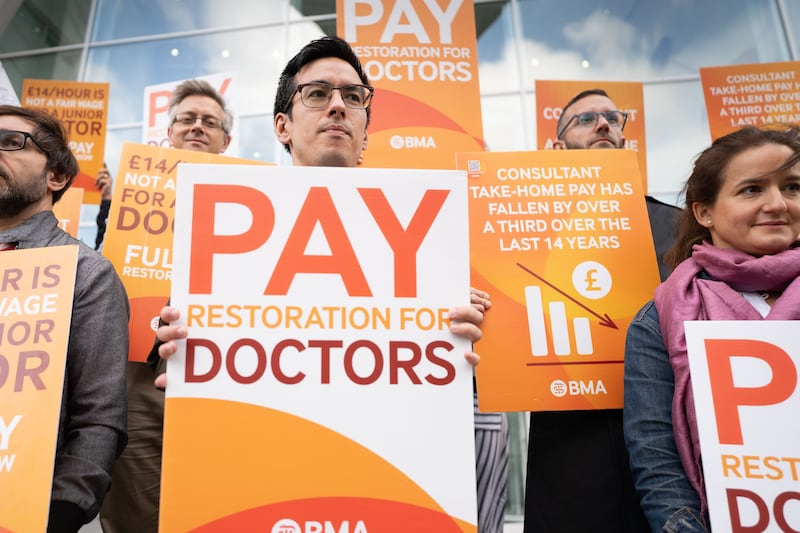CONSULTANT shortages in ICU and anaesthetics have been revealed at a time of spiralling hospital waiting lists for surgery.
Burnout and rising numbers of medics retiring or working less have been linked to the spike in highly skilled doctors' jobs lying empty.
Vacancy rates among the consultancy workforce are at the highest in two years, with a trade union calling on the Department of Health to act "urgently" and encourage more doctors to stay and work on the frontline.
The development comes as the north's health service continues to struggle with massive shortages in nursing.
With more than 90,000 patients waiting over a year for operations and hospital day case procedures, there are growing concerns about an emerging two-tier system.
Dr John D Woods, who heads the British Medical Association's (BMA) consultant committee, said the latest quarterly vacancy statistics were concerning "but sadly not surprising".
They show that 118 out of the 265 hospital medical grade vacancies are among the most senior consultant posts.
Dr Woods pointed to job shortages in key areas of medicine, including critical care, while noting a recent BMA survey which showed more than 60 per cent of doctors reporting high levels of fatigue.
He added: "It is clear the levels of exhaustion that frontline doctors are experiencing from the pandemic response and existing workload and workforce issues is now being seen in the vacancy rates in secondary care.
"It is particularly concerning to continue to see high vacancy rates in specialties such as anaesthetics, ICU and critical care medicine. These are key specialties in addressing the spiralling elective care waiting lists and treating Covid-19 patients.
"The Department of Health needs to address it urgently and do more to encourage doctors to stay and work in the health service as they are vital in addressing the waiting list crisis and delivering health service transformation."
He also called for appropriate pay and an overhaul of the pension taxation system, which he said was forcing "unfair" financial penalties on doctors working extra shifts to cover rota gaps and reduce waiting lists.
Stormont health committee chair Colm Gildernew said the consultant shortage was reflective of a wider workforce crisis.
"It's clearly worrying we are see gaps in critical areas. We cannot allow a system to develop where there is a two-tier approach and there needs to be a strategy put in place to stabilise the workforce," he said.








